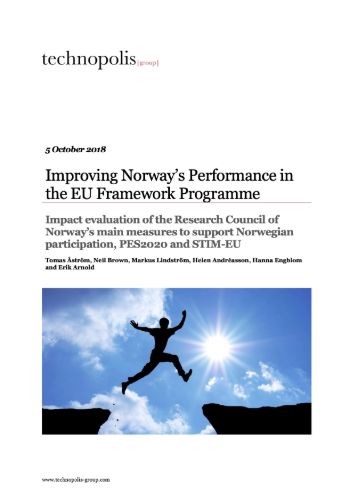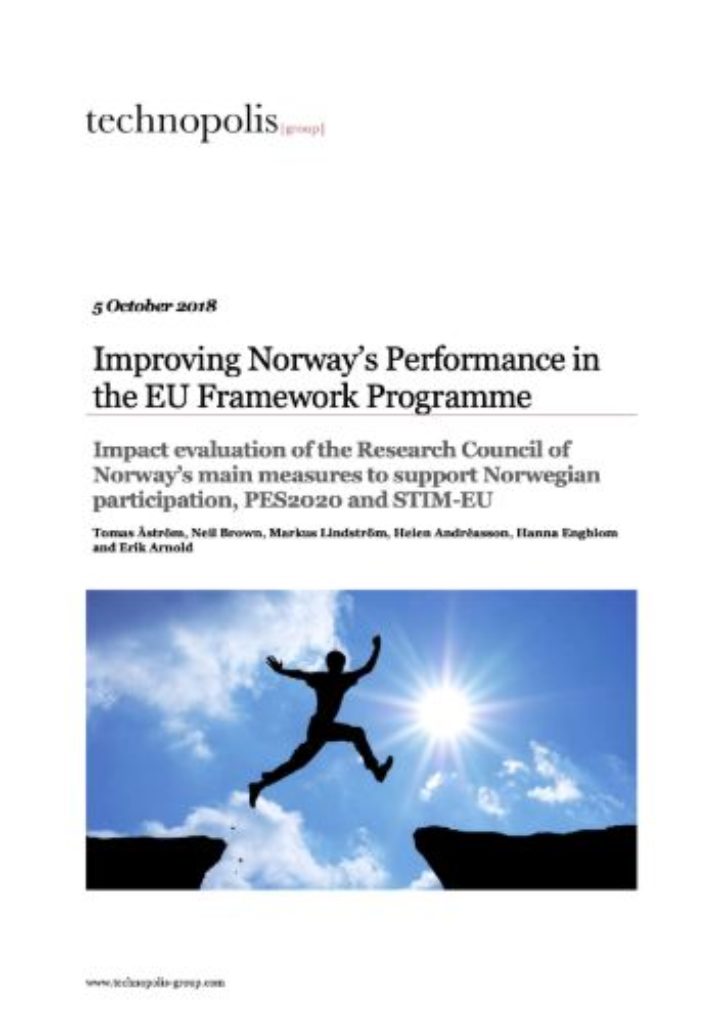Improving Norway’s Performance in the EU Framework Programme
Publication date: 1 Oktober 2018 | Report language: EN
The Research Council of Norway (RCN) commissioned Technopolis Group to conduct an impact evaluation of its two main support measures to enhance Norwegian participation in Horizon 2020, PES2020 and STIM-EU. Any organisation that may receive RCN funding is eligible for PES2020 support, but only research institutes are eligible for STIM-EU support.The evaluation concludes that PES2020 is associated with increased FP activity, with some additional proposers and with slight quality improvements to proposals, but these relationships do not all apply equally to all stakeholder categories.
The evaluation further finds that STIM-EU has led to more H2020 proposals, and the evidence suggests that there may be a positive effect in terms of partnering with Norwegian companies. Based on the findings, the evaluation proposes to limit PES2020 support to stakeholders in greatest need and to selectively increase the level of STIM-EU support to compensate for the very low base funding of most Norwegian institutes.






